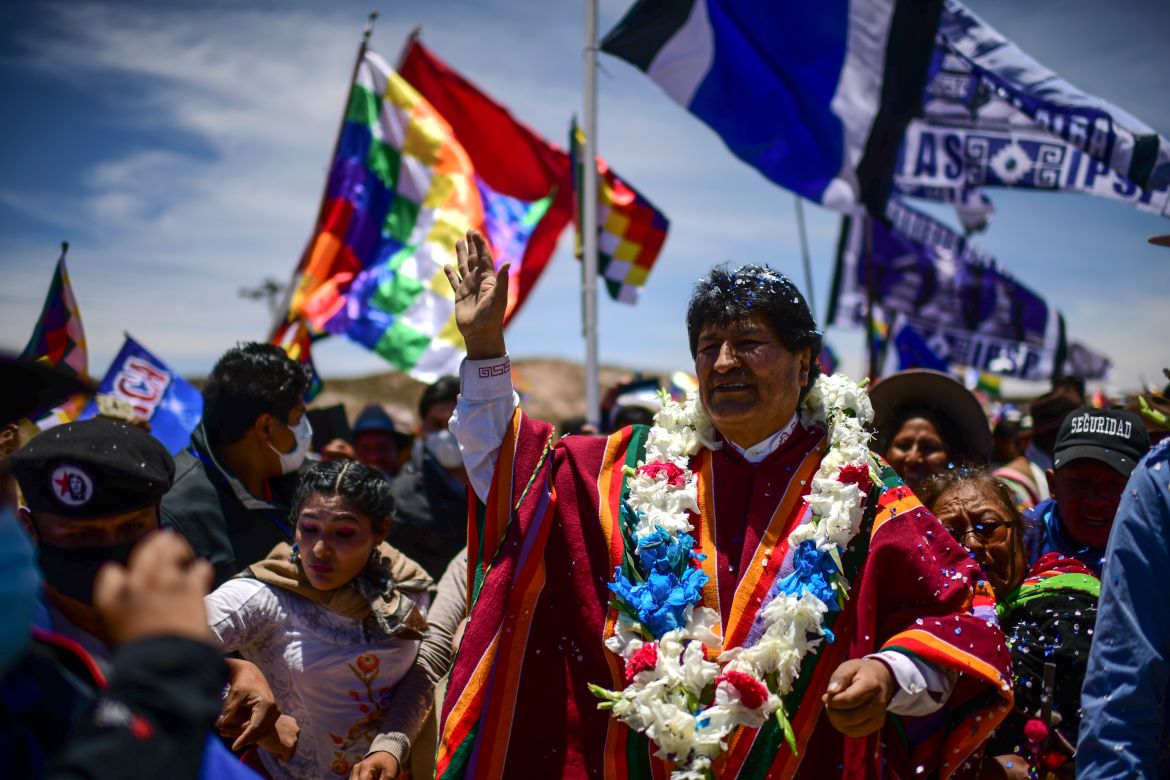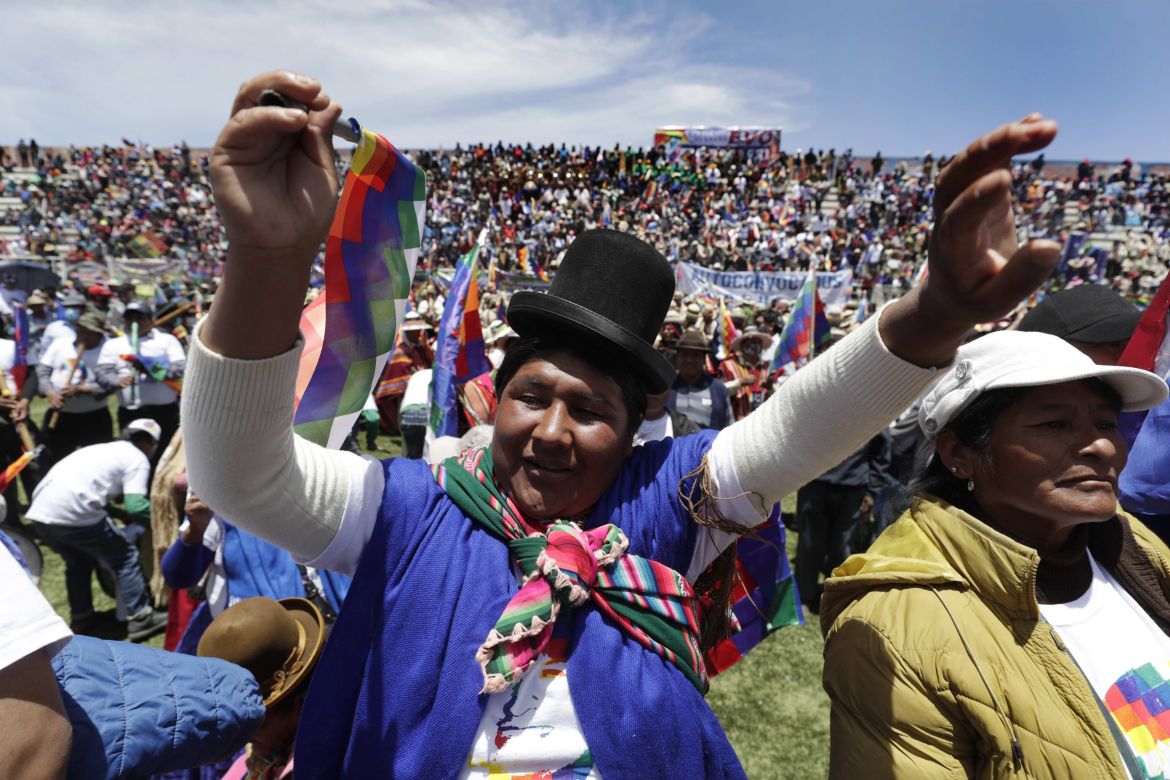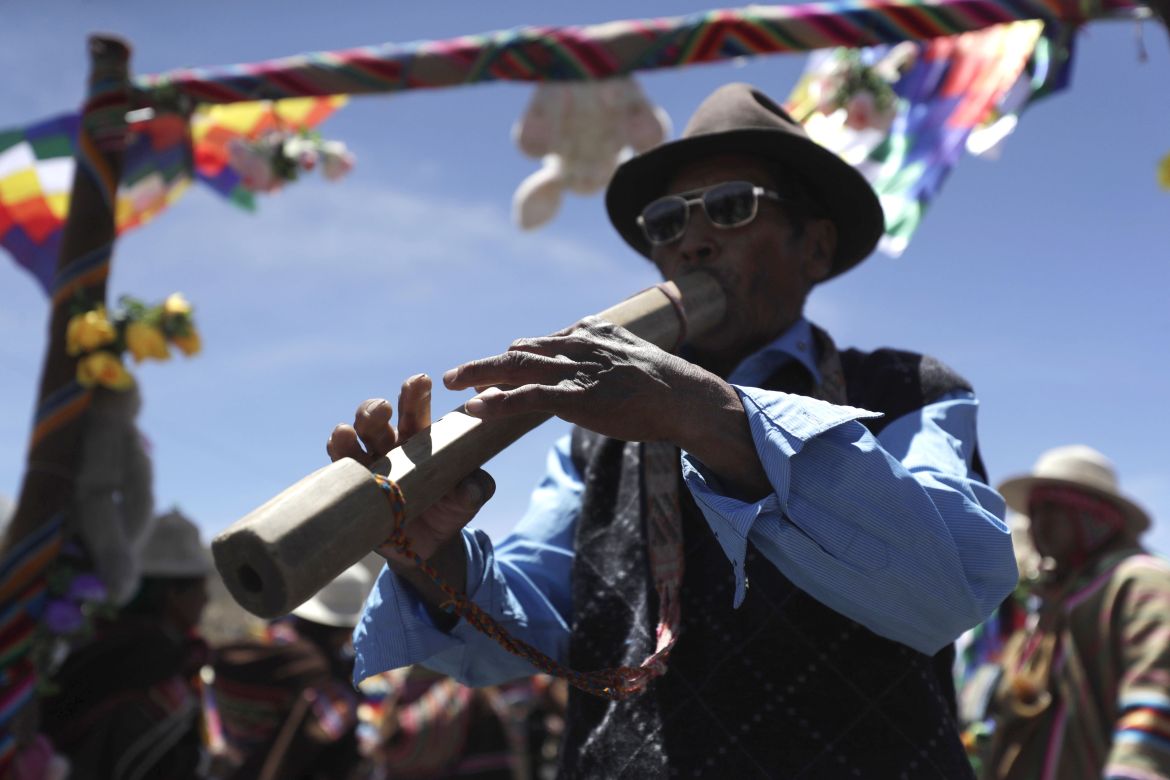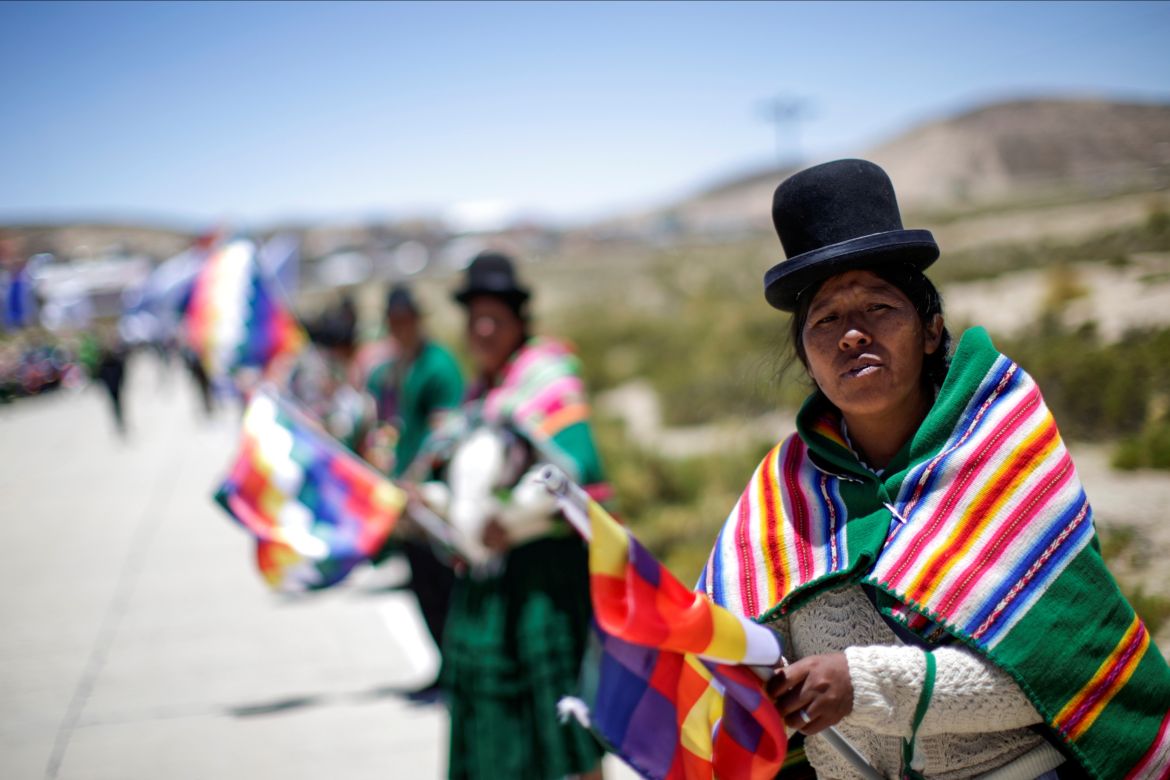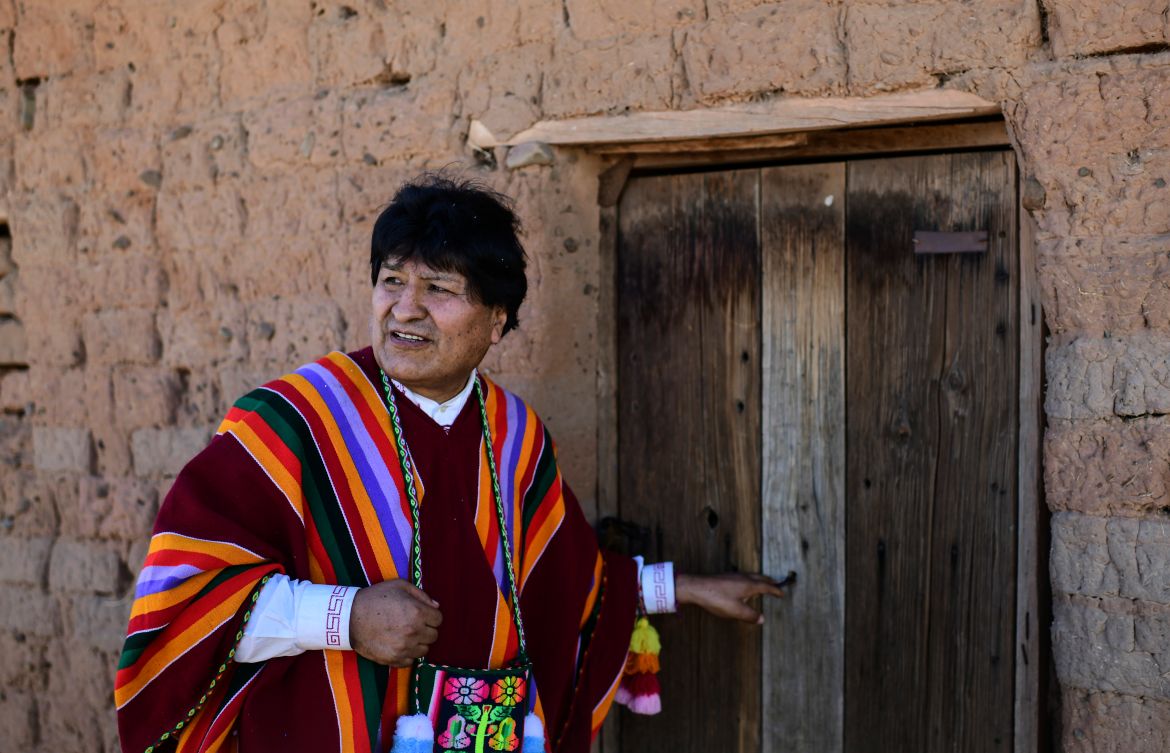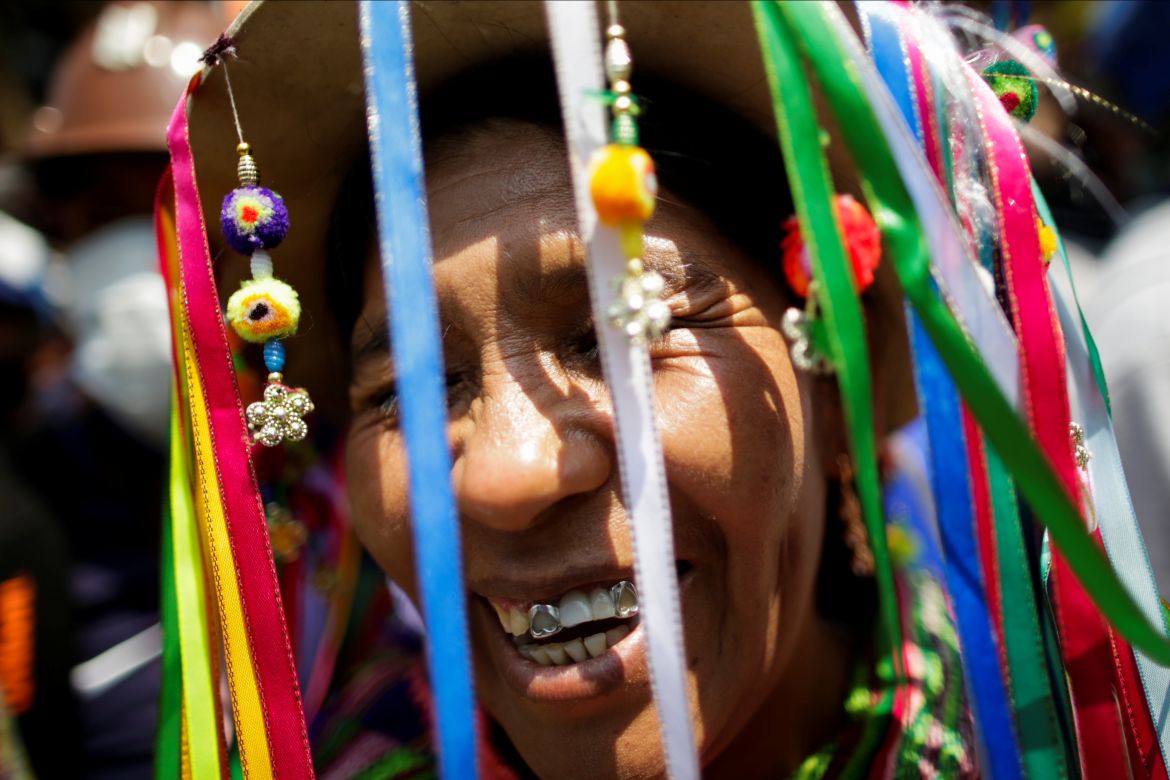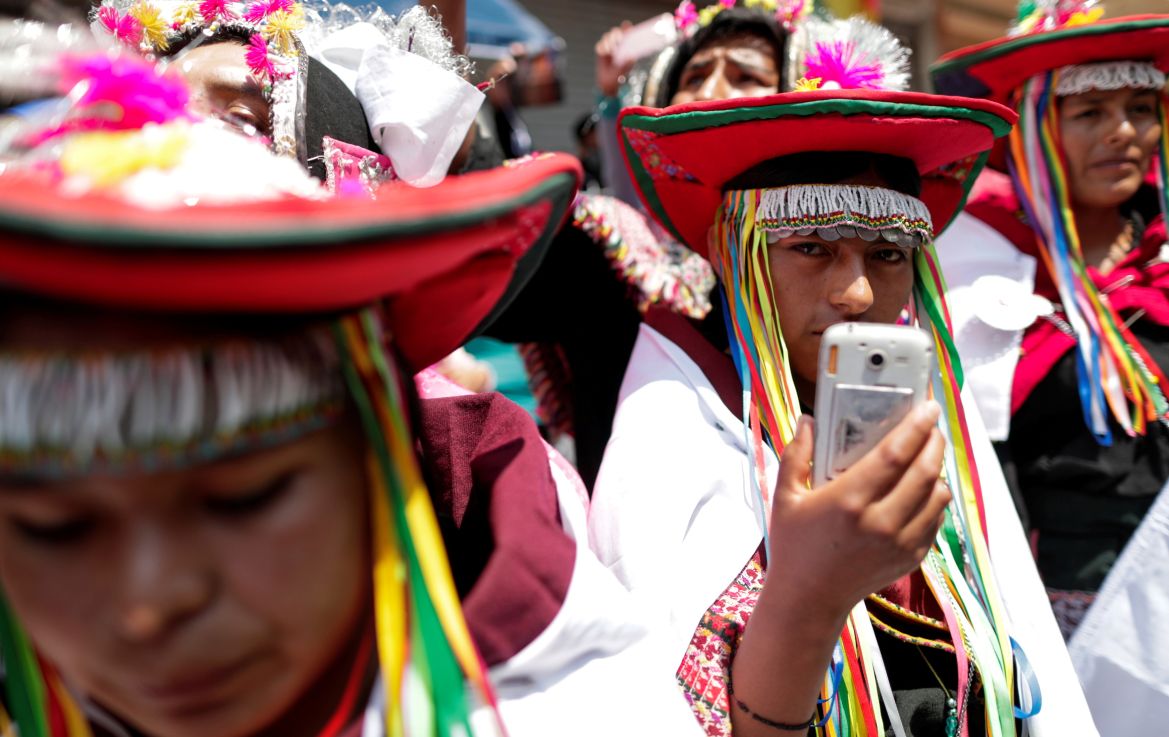In Pictures
In Pictures: Bolivia’s Morales back from year in exile
Wearing colourful traditional clothing and waving the Indigenous Wiphala flag, hundreds of people welcomed Morales with cheers.
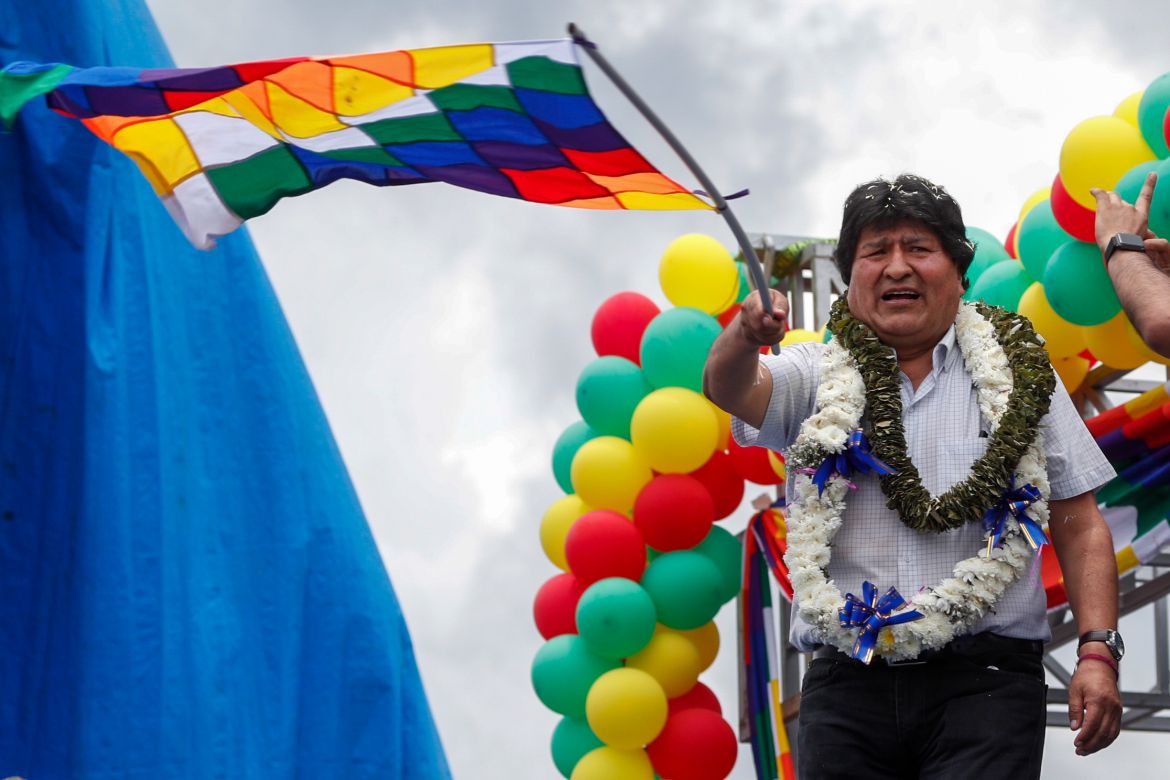
Thousands of supporters of Bolivia’s ex-President Evo Morales crowded into his political stronghold on Wednesday for a climactic rally to mark his triumphant return to his homeland.
Morales arrived in Chimore, in the heart of Bolivia’s coca-growing region, at the head of a cavalcade of vehicles that has accompanied him on a 600-mile (960km) homecoming tour since crossing the border from Argentina on Monday.
The rally has special significance for Morales, who fled Chimore a year ago for exile – initially in Mexico, then in Argentina – having lost the support of the armed forces amid violent protests against his re-election to an unconstitutional fourth term.
Morales was accompanied to the border on Monday by Argentine President Alberto Fernandez, before crossing on foot and being greeted by hundreds of joyous supporters.
Morales spent 11 months in Argentina after he resigned as president and fled the country after his failed bid for a fourth term.
Hundreds of people braved a chill wind in Villazon, on the Bolivian side of the border, since dawn as they waited to greet Morales, who ruled Bolivia for more than 13 years as its first Indigenous president.
Wearing colourful traditional clothing and waving banners and the Indigenous Wiphala flag, they acclaimed Morales’s return with cheers.
“We are happy. He is like our father, the father of all these humble people. He has returned and will always be with us in our hearts,” said Alejandra Choque, a 56-year-old housewife.
But many local villagers, like 49-year-old butcher Mirian Franco, paid no heed to the returning hero.
“I have to open my business, the pandemic and the closing of the borders is killing me. I can’t go and see Evo, he won’t bring me any money,” she said.
The three-day road trip back to his political base was loaded with symbolism for the 61-year-old former coca farmer turned president.
It comes after his successor as head of the Movement for Socialism (MAS) party, Luis Arce, was inaugurated as president after winning last month’s election.
Morales had been the subject of a detention order for “terrorism” by the previous right-wing interim government, but that was lifted by the public prosecutor following Arce’s election victory.
He is also under investigation for “rape and trafficking” over two alleged relationships with underage girls, including one with whom he supposedly fathered a child.
Bolivia has one of the largest Indigenous populations in Latin America, representing 41 percent of the country’s 11.5 million population.
More than 34 percent live in poverty, their situation made worse by the coronavirus pandemic.
Many are hoping for a reprise of the so-called “economic miracle”, a boom period that saw much of the country’s industry and infrastructure modernised under Morales, with Arce as his economy minister.
Morales remains an immensely popular figure and many Bolivians believe his return risks overshadowing Arce’s leadership, and wonder who will really be pulling the strings of the new government.
